SAMMY DAVIS JR.
-
May 10
1837—P.B.S. Pinchback was born in Macon, Ga., to a White plantation owner and a free Black woman. He became one of the leading Black politicians of the Reconstruction era, especially in Louisiana. After the Civil War, he became lieutenant governor of Louisiana and actually served as governor for 43 days. He was later elected to both the U.S. House of Representatives and the U.S. Senate. He would also play a significant role in the establishment of Southern University and a major Black newspaper known as the Louisianan.
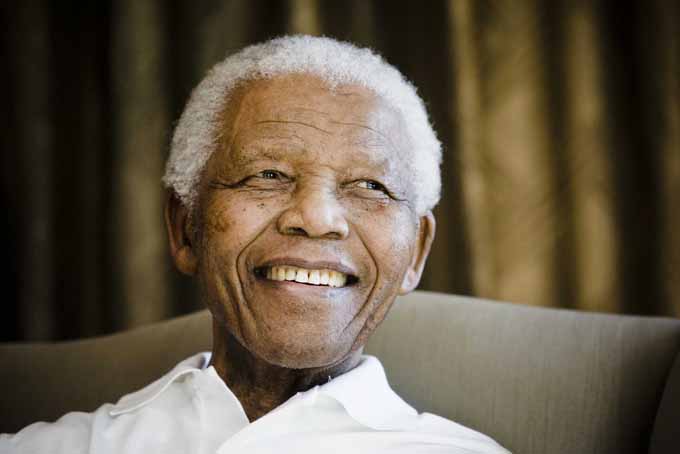
1994—After being released from 27 years of imprisonment for his battles against the racist system of apartheid, Nelson Mandela is elected the first Black president of South Africa. His government focused on dismantling the legacy of apartheid through tackling institutionalised racism and fostering racial reconciliation. Politically an African nationalist and democratic socialist, he served as president of the African National Congress (ANC) party from 1991-97.
- May 11
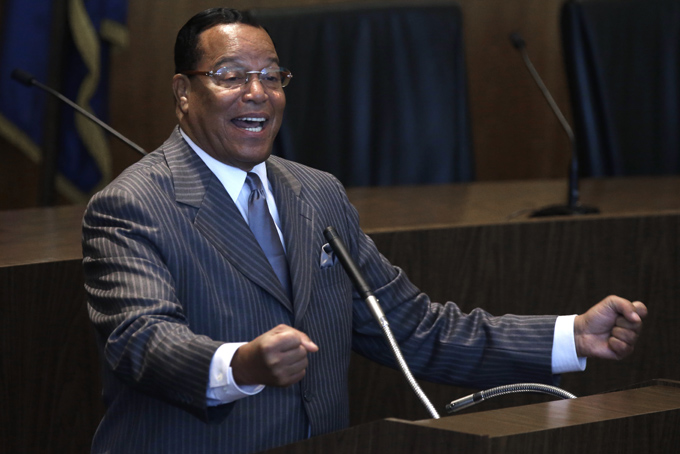
1933—Nation of Islam leader Louis Farrakhan is born Eugene Walcott on this day in the Bronx, N.Y. He was raised by his St. Kitts-born mother in Roxbury, Mass. Prior to joining the Nation of Islam in 1955, Walcott had achieved celebrity status in the Boston area as a Calypso singer, dancer and violinist known as “The Charmer.”
1968—Nine caravans of protesters arrived in Washington, D.C., for the first phase of the Poor Peoples Campaign—an anti-poverty effort conceived by Dr. Martin Luther King Jr. The campaign aimed to united Black, White and Hispanic poor people in an effort to pressure the government to do more to eliminate poverty in America. King had been assassinated the previous April, so the campaign was led by his lieutenant, Rev. Ralph Abernathy. The campaign erected Resurrection City near the Lincoln Monument and held daily demonstrations in Washington from May 14 to June 24.
-
May 12
1862—In a bold and heroic endeavor, Robert Smalls led 12 other slaves and stole a Confederate warship, then turning it over to Union forces. The White captain of the steamer Planter and other officers had gone ashore for a party in Charleston, S.C. Smalls, a wheelman, quickly organized the Black crew and steered the ship out of Charleston harbor right past the unsuspecting Confederate forces. For his daring deed, Smalls was commissioned a 2nd lieutenant. After the Civil War, he was elected congressman from South Carolina.
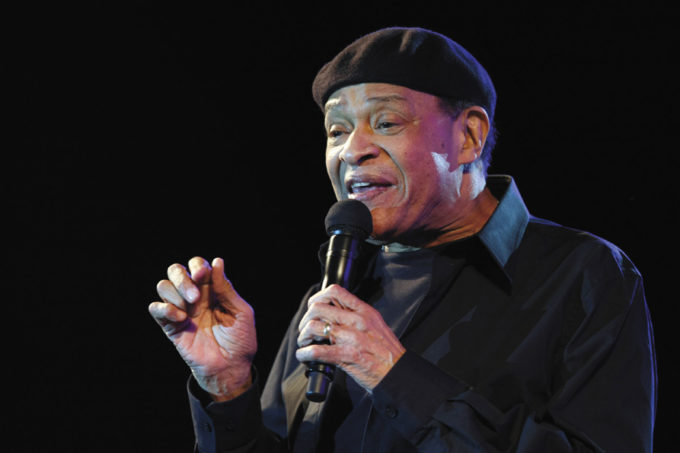
1940—Jazz singer Al Jarreau was born on this day in Milwaukee, Wisc.
- May 13
1865—The last battle of the Civil war ends. Ironically, it appears the Confederate troops won the battle at Palmetto Ranch, Texas. However, it was the actions and bravery of the 62nd Regiment of United States Colored Troops that prevented the defeat from turning into a rout. The Confederates had actually underestimated the fighting prowess of the Blacks, assuming they would run in fear when the fighting began. Instead, what occurred was the rapid defeat of two White regiments but the Black soldiers of the 62nd held firm. The Confederates would later surrender.
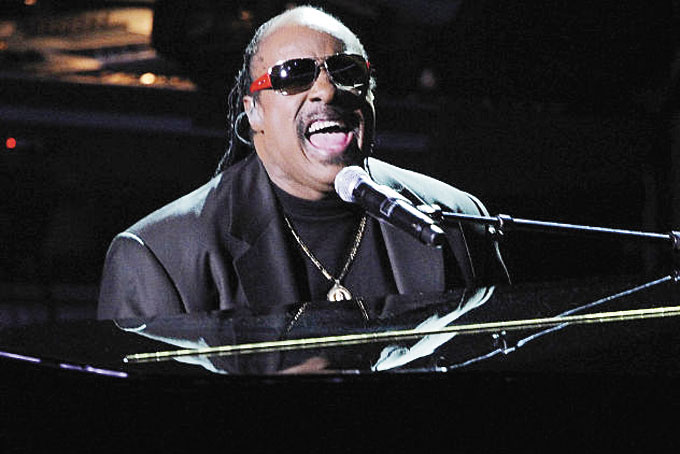
1950—Singer-songwriter Stevie Wonder is born Steveland Hardaway Judkins in Saginaw, Mich. Wonder has recorded more than 30 Top 10 hits and has received 25 Grammy awards,one of the most-awarded male solo artists, and has sold more than 100 million records worldwide, making him one of the Top 60 best-selling music artists. Wonder is also noted for his work as an activist for political causes, including his 1980 campaign to make Martin Luther King Jr.’s birthday a holiday in the United States.
-
May 14
1885—Erskine Henderson, an African American jockey, wins the Kentucky Derby on “Joe Cotton”—a horse trained by Alex Perry—an African American trainer. Henderson was the sixth Black jockey to win the coveted race. Indeed, Black jockeys and trainers dominated the Kentucky Derby from 1875 to 1902. However, while some of the reasons are not entirely clear, it appears that as the race became more and more prosperous, Black jockeys and trainers were forced out.
1970—A student protest on the campus of Mississippi’s Jackson State University leads to a massive confrontation with local police authorities. When the smoke cleared, two students had been shot and killed and another 12 injured or wounded. Reasons given for the protests ranged from opposition to the War in Vietnam, racial tensions and anger over the National Guard killings of White students on the campus of Kent State University earlier in the month. The university memorialized the disturbance by naming the area where it took place “Gibbs-Green Plaza” after the two students who were killed—Phillip Lafayette Gibbs, 21, and James Earl Green, 17.

MOVE
1985—In a confrontation with the Black Nationalist back-to-nature group MOVE, Philadelphia police drop an incendiary device on the group’s home and headquarters. The decision to bomb had been apparently approved by Black Mayor Wilson Goode. Eleven MOVE members, including five children, were killed.
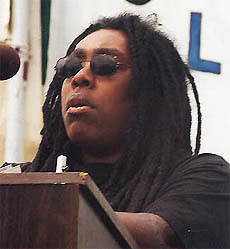
The only adult survivor was Ramona Africa. More than 60 homes in the surrounding area were burned to the ground. It was never fully clear why the decision to drop the bomb was made.
-
May 15
1911—Kappa Alpha Psi, one of the nation’s leading Black fraternities, is founded on this day on the campus of Indiana University by 10 young men led by Elder W. Diggs and Byron K. Armstrong.
1942—The 93rd Infantry is activated and assigned to combat in the Pacific. It thus became the first African American division formed during World War II.
-
May 16
1868—The United States Senate fails by one vote in securing the two-thirds vote needed to convict President Andrew Johnson of the articles of impeachment, which had been brought against him. The failure was a major setback for Black rights in America because Johnson had become a leading opponent of voting rights and economic advancement for the recently freed slaves. While the impeachment trial did not center on Black rights, Blacks would have clearly benefited if Johnson had been expelled from office.
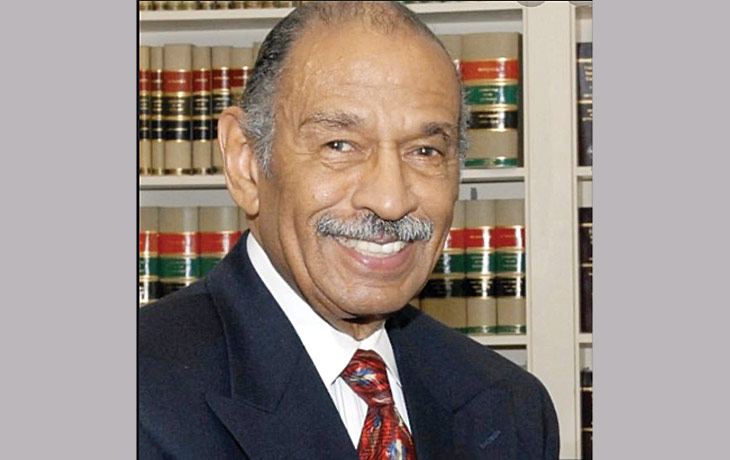
1929—Detroit Representative John Conyers Jr., one of the founding members of the Congressional Black Caucus, was born on this day in 1929. He remains one of the most progressive members of the United States Congress.

1966—Janet Jackson, of the famous and talented Jackson family, is born on this day in Gary, Ind. Controversy remains as to whether Janet has a secret daughter.

1990—Sammy Davis Jr. dies in Beverly Hills, Calif., at age 64. Davis, born in Harlem, N.Y., was a world class entertainer who performed well as an actor, singer and dancer. He was also a member of Hollywood’s popular and notorious “Rat Pack,” which included Frank Sinatra, Dean Martin, Joey Bishop and Peter Lawford.
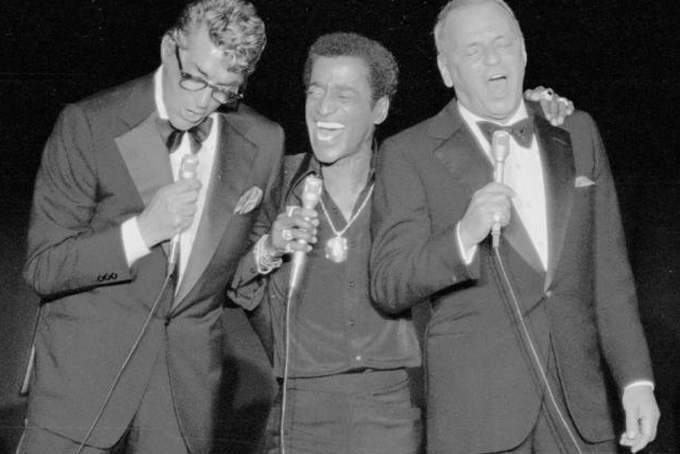
Frank Sinatra (right) with Dean Martin and Sammy Davis Jr. (AP Photo/File)
